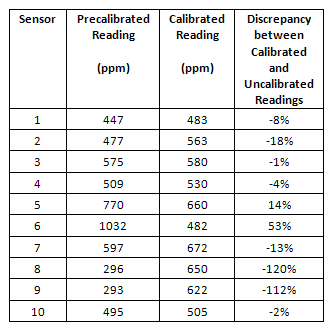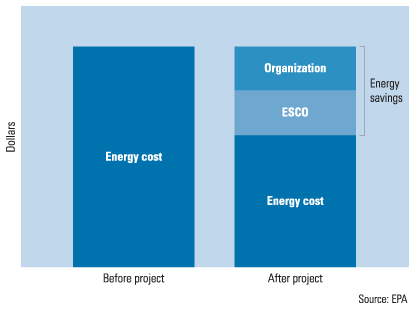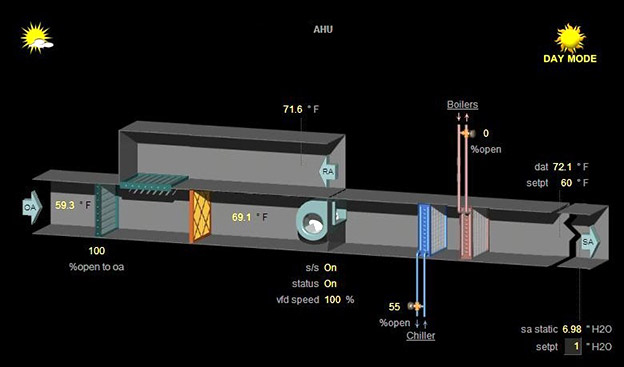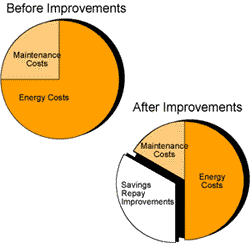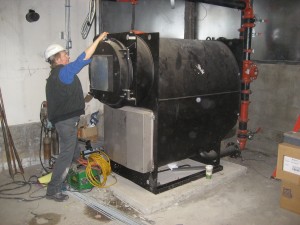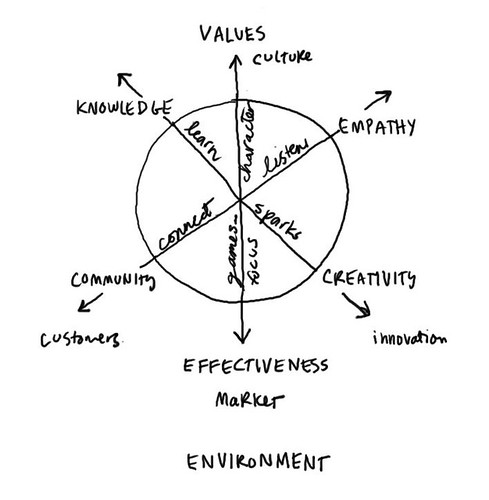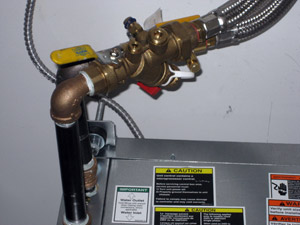It's easy to forget to reset your building management system (BMS) or a direct digital control (DDC) system seasonally. Did you overwrite your building management system to forgo night-time building temperature setup due to the hot summer this year? Many buildings had a hard time maintaining their cooler daytime temperatures and therefore cancelled the energy saving nighttime setup program. Forgoing this energy savings was worth the extra hours the building was able to maintain proper temperatures during the workday.
Eveline Killian
Recent posts by Eveline Killian
3 min read
Building Management System Seasonal Reset: Don’t Forget
By Eveline Killian on Oct 31, 2012 6:00:00 AM
Topics: Energy Efficiency Building Performance & Technology
3 min read
DDC Sensor Calibration Is Important and Often Overlooked
By Eveline Killian on Sep 12, 2012 6:00:00 AM
The Importance of Sensors
A DDC system is programmed to control all of the HVAC equipment in the building. In the central plant equipment, an outdoor air temperature sensor determines if the building is in cooling or heating mode, a flow meter measures how much hot or chilled water is being supplied, and a liquid temperature sensor regulates the hot and chilled water supply temperatures. Within the conditioned spaces, a thermostat measures the room temperature and sends a signal back to the air handling unit to dictate if hot or cold air is required. A temperature sensor and an air pressure sensor determine how much conditioned air is being supplied and at what temperature.
Topics: Building Performance & Technology
4 min read
The Success of a Performance Contract Lies in the Details
By Eveline Killian on Jul 25, 2012 6:00:00 AM
A Performance Contract with an Energy Services Company (ESCO) can be a powerful tool to enable a business to improve the performance of their facility without requiring money upfront. An ESCO assesses a facility’s energy efficiency opportunity, manages the improvement implementation and guarantees the energy savings will be greater than the cost of the project. In my recent blog post, ESCO: Energy Efficiency Investment with No Money Down, I describe the process of a Performance Contract and state “the ESCO assumes the risk of under-performance.” In recent months, however, the cost of natural gas has decreased substantially and many existing Performance Contracts are seeing negative savings for which the building owners are responsible.
Topics: Public Policy Energy Efficiency
4 min read
Fault Detection and Diagnostics in Direct Digital Control Systems
By Eveline Killian on Jul 4, 2012 6:00:00 AM
Fault Detection and Diagnostics (FDD) is an exciting new software tool used to contain energy costs and diagnose energy issues that affect the life and functionality of HVAC equipment and lighting. FDD takes the ability of the direct digital control (DDC) systems a giant leap further into analyzing the performance of these building systems.
Topics: Energy Efficiency Building Performance & Technology
5 min read
ESCO: Energy Efficiency Investment with No Money Down
By Eveline Killian on May 16, 2012 6:00:00 AM
An Energy Services Company (ESCO) is a commercial business that “will identify and evaluate energy saving opportunities and then recommend a package of improvements to be paid for through savings”.[1] Performance Contracting with an ESCO can be a very powerful tool for a company with energy saving opportunities but no upfront cash or financing options to implement the projects. An ESCO is a one-stop shop for energy opportunity identification, quantification, financing, implementation, staff training and a guarantee that the savings will cover the costs of the project. For a business, the bottom line is that one’s annual operating costs will not increase, because project financing and the cost of the ESCO are both covered in the energy and maintenance savings realized by the project. In addition, the ESCO assumes the risk of under-performance. If the savings are not achieved, the ESCO is responsible for covering the difference.
Topics: Public Policy Energy Efficiency
3 min read
Design Engineers Benefit from Building Commissioning
By Eveline Killian on Mar 28, 2012 6:00:00 AM
As an HVAC design engineer and an energy analyst, I was intrigued by the building commissioning process when I first came to work for Cx Associates. The building commissioning process is where the theoretical design world meets the reality of “how does my building actually work”? Designers typically don’t get this feedback; they must move on to their next job as soon as the design is complete. In addition, design engineers almost never get on the job site during construction to see design issues first hand, nor do they typically receive feedback on how the building operates after occupancy. This lack of feedback is recognized as a lost opportunity for continuous improvement, but it’s a reality.
Topics: Building Cx & Design Review
3 min read
Retrocommissioning and Energy Efficiency BEFORE Renewables
By Eveline Killian on Feb 29, 2012 5:00:00 AM
Renewable energy – wind and solar in particular – are all the rage these days. Companies are clamoring to be to be seen as “green” to feel good about their power sources and to market this image to the world. But what many don’t do first is the less glamorous and less visible step of reducing their need for energy by retrocommissioning and investing in energy efficiency. Why put in a large array of solar panels when a quarter of this load represents wasted building energy?
Topics: Building Cx & Design Review Energy Efficiency
4 min read
Sustainability and Corporate Culture Change
By Eveline Killian on Feb 15, 2012 5:00:00 AM
Sustainability – defined here as the responsible management of natural resources to create a more robust, independent and environmentally conscious organization – is a pursuit being explored by more and more companies. The challenge for many corporate leaders and managers is how to initiate change in their company’s culture. How do you create such a sea change authentically: something that won’t sound like a gimmick or start with a bang and fizzle out within a brief period of time? Over the years I have seen a pattern to the steps taken by clients who have been successful in creating a corporate culture of sustainability.
Topics: Sustainability Workplace & People
3 min read
Building Retrocommissioning: What Is It and Why Should You Care?
By Eveline Killian on Jan 4, 2012 5:00:00 AM
Everyone is talking about building retrocommissioning – they just don’t know it. Retrocommissioning is the art of analyzing a building’s current performance and implementing measures to reduce the operating cost while improving the functionality of the building’s systems. (Commissioning is the term used to describe this process when it is applied to new buildings, so ‘retro-commissioning’ evolved as the term for when the building has been around a while.)


